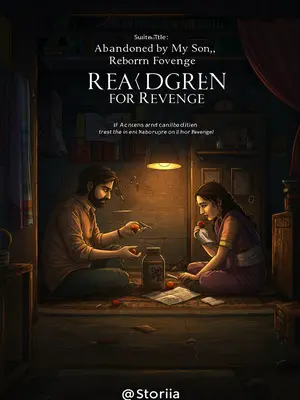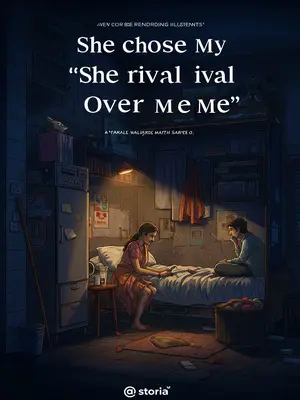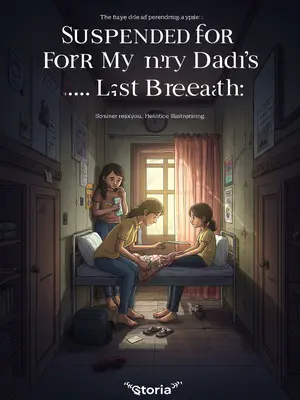Chapter 6: The Hotel and the Past
At the hotel. The lobby was cold and impersonal, with tacky plastic flowers in dusty vases. My feet ached from walking, and the receptionist barely looked up as I signed in.
Standing in front of the mirror, I carefully wiped the blood from my forehead. The wound was angry and red, throbbing with every heartbeat. The wound was large—a single band-aid couldn't cover it at all.
I rummaged through my purse, found a tissue, and pressed it to the cut, biting my lip against the sting. But it was so late, I didn't dare leave the room to buy bandages.
Outside, the corridor was silent, except for the distant sound of the watchman’s radio. The watchman’s radio crackled outside, and somewhere down the corridor, someone shouted for extra chai.
Usually, I never got enough sleep. But tonight, maybe because of the stinging pain, I couldn't sleep at all. I tossed and turned, sheets tangled around my legs, the city’s noise drifting through the thin windows.
I couldn't remember why I was sent abroad in the first place. Everything from those days was blurred—just a jumble of faces, languages, and hospital corridors. All I remembered was that since childhood, my sister was always smarter and better than me.
She topped every class, won every trophy, and looked beautiful doing it. Our relatives would point at her, saying, “See, that’s how a Malhotra bahu should be.” Wherever she went, she shone.
At school functions, Priya’s name would echo through the loudspeaker, and I’d sit in the back row, fingers sticky from the last piece of barfi. Even teachers would compliment her. The principal called her “our pride.”
So my parents placed all their hopes on her. Papa would bring home mithai whenever she won something. For me, there were only the leftover sweets and polite pats on the head.
My sister became a child model at a very young age, and later, with her beauty and perfect-student image, became a celebrity. Her face was everywhere—on hoardings, TV ads, even the cover of Femina.
As for me, apart from being as pretty as she was, I was useless at everything else. I failed math, forgot birthdays, and never learned how to keep my mouth shut. I was always the family’s joke, never the pride.
So I understood my parents' favouritism. They meant well, I told myself. At least, I hoped they did. I agreed with their decision to give more resources to my capable sister. I would nod along, pretending it didn’t hurt. After all, what was the alternative?
But was that favouritism the reason they sent me abroad? Was I really that hopeless? I remembered swallowing handfuls of pills and undergoing painful treatments overseas. My mother told me over the phone that it would make me smarter.
She’d say, “Beta, bas kuch din aur. You’ll come back brand new.” But I always felt that after coming back, my mind worked even worse. I lost words, forgot names, sometimes even my own.
Besides being sleepy, my reactions were slower. The world spun a little, always just out of reach. I wondered if I’d ever feel whole again.
Was it because the treatment failed, so my parents had to bring me back? Or was I always broken, and they just gave up on fixing me? Because I got even dumber, did they like me even less?
A single tear rolled down my cheek as I stared at my reflection—a pale ghost of the girl I used to be.













